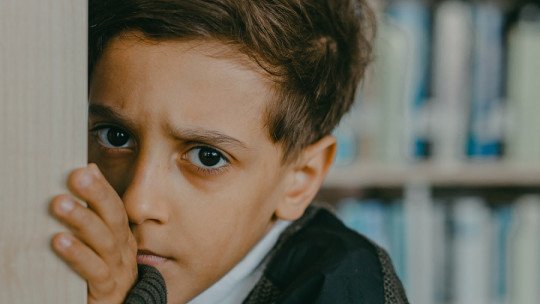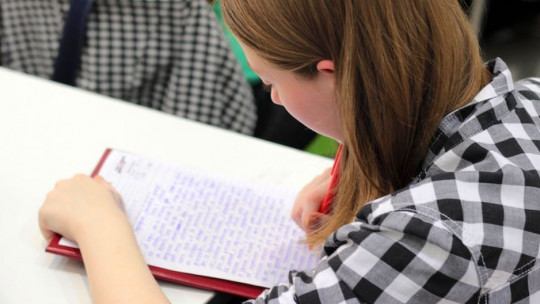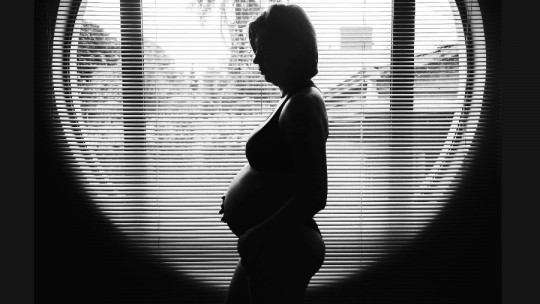Everyone knows that childhood is one of the most important stages in human development, since it lays the foundations for the future person we will become when we grow up, and each important experience lived during these initial years can contribute to establishing the personality structure of the subject.
For this reason, child psychology professionals are interested in those experiences, experiences or eventualities that we experience in childhood, that is, in everything that affects us both positively and negatively in the present and in the future of the little ones. . Among these experiences, Much of the work of psychotherapists specialized in caring for children focuses on intervening in anxiety problems , since these are very common in the initial stage of development of the human mind. Let’s see how it works in this sense.
The characteristics of anxiety problems in childhood
Excessive anxiety is one of the main reasons for consultation that child psychologists around the world receive daily, and to resolve this disorder in children of childhood age it is necessary to put into practice a series of strategies and therapies based on the scientific method. , just as happens in adult psychotherapy.
Anxiety in children has its own characteristics, and in most cases it is usually more harmful to the mental health of the boy or girl who suffers it firsthand.
As psychology professionals know, there are quantitative differences in the anxiety experienced by children compared to this same discomfort in adults, since infants experience anxiety problems that can be much more intense. But in the qualitative field there are also differences between children and adults, since Little ones tend to be more sensitive and experience adversity differently. This difference can be seen in how infants tend to believe more in superstitions and imaginary threats that do not exist in the real world.
This is because their adult brain is not yet fully formed and therefore some areas of reasoning or rational and critical thinking have not yet reached their optimal degree of maturity, which is why they are more likely to believe in magical or fantastic ideas such as “temporary” way of answering complex questions about how the world works.
In addition to that, children are more dependent on other people in their care (generally their parents or relatives) and they feel unprotected more easily and frequently.
Regarding social norms, children also tend to have greater uncertainty when it comes to not knowing how to behave correctly, something that affects them much more and generates greater anxiety, due to this lack of knowledge of social norms or behavioral patterns.
Psychological intervention in children’s anxiety problems
Psychology and psychotherapy professionals have established, over several years of research and experience, a series of intervention protocols for childhood anxiety based on scientific evidence.
These professional strategies and techniques are used daily in psychology consultations around the world to improve the mental health of boys and girls who have cases of anxiety or other associated disorders.
Below we briefly present the main intervention strategies with the highest percentage of scientific evidence to treat cases of anxiety in childhood.
1. Controlled exposure
Controlled exposure is applied in those cases in which the patient has an exacerbated fear or irrational phobia of any type of harmless situations or objects.
This exposure consists of presenting the stimulus that generates fear to the boy or girl progressively, with increasing intensity so that the patient becomes accustomed to the source of his or her fear and ends up losing fear completely.
This type of intervention is carried out using a scientific methodology and must be applied by a specialized professional.
2. Cognitive restructuring
Cognitive restructuring is one of the main techniques used by psychotherapy professionals in cases of anxiety due to its high standards of scientific evidence.
This consists of questioning the beliefs that generate discomfort that the infant may harbor, as well as problematic, blocking ideas or ideas that prevent him from moving forward to achieve optimal mental health.
During the intervention process, the psychotherapist’s work consists of that the patient reflect deeply on his maladaptive beliefs understand that the problem lies largely in how you perceive the world around you and be able to replace them with more positive and adaptive ones.
3. Emotional labeling
Emotional labeling consists of expressing in words what makes them feel bad so they can stop fearing it so much and see it from a more distanced perspective. It is another highly used classic psychological procedure.
By expressing their own fears through writing or talking about what is happening to them the boy or girl will learn more about their own fears and will begin to learn effective ways to overcome the anxiety they generate.
4. Training in relaxation techniques
Another strategy that professionals use is to train them in simple Mindfulness exercises so that they know how to focus on the present and get rid of intrusive thoughts.
With Mindfulness, children learn to better focus and control their attention and overcome anxious states based on excessive agitation of the body and mind.
5. Social skills training
Train them in social skills so that they lose fear of talking to other people and asking for help when they need it It is also one of the strategies that psychotherapy professionals mostly use.
Since there are several types of anxiety related to exposure to social situations, teaching children various adaptive social interaction strategies and specific social skills will help them overcome their fears and various problems.
6. Sleep routines
Finally, teaching sleep routines that help them sleep well will also be very effective in helping children overcome their anxiety problems.
Not surprisingly, anxiety is often related to an obvious lack of sleep or maladaptive sleep patterns.









